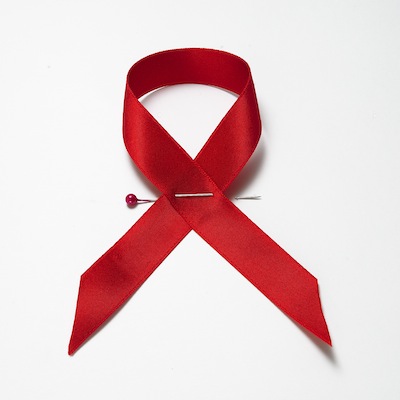EU-funded AIDS prevention programs presented

By Nigar Orujova
The European Union-financed projects on HIV/AIDS prevention were presented in the Azerbaijani capital Baku on Monday.
Head of the EU Delegation in Azerbaijan Roland Kobia, addressing the opening of the event, spoke of the bitter impact of AIDS, noting that the disease continues to claim the lives of many people, including children.
Acquired immunodeficiency syndrome (AIDS) is a serious disease of the human immune system caused by the human immunodeficiency virus (HIV).
According to Kobia, the EU is supporting the prevention of AIDS proliferation in various formats. He stressed the importance of informing people about the disease and providing the required treatment to those infected.
The EU is funding seven AIDS prevention projects in Azerbaijan, which are being implemented by local NGOs, Kobia said.
Representatives of the Public Union of Woman Leaders during the event presented a program that aims to prevent HIV/AIDS among young women in the rural areas of Azerbaijan and envisions "a social and cultural approach" targeting improvement of awareness on the issue and other goals.
According to the program, a poll was conducted among 1,800 respondents, with 69.5 percent of those polled saying they were informed about the disease, 28.5 percent did not know about it. Some 95.1 percent of respondents did not know what HIV is and 94.1 per cent were not aware of what AIDS is.
Annually, December 1 is dedicated worldwide to raising public awareness of the AIDS pandemic caused by the spread of the HIV infection. An event dedicated to the World AIDS Day was held in Azerbaijan last Saturday.
The Azerbaijan Republican AIDS Center's acting director, Esmira Almammadova, said at the event that 453 new cases of HIV infection have been registered in Azerbaijan in the last 11 months.
Some 439 (96.9 percent) of those infected are Azerbaijani citizens, while 14 people (3.1 percent) are foreign nationals.
The first HIV infection in Azerbaijan was registered in 1987. From that period until December 1, 2012, the Azerbaijan Republican AIDS Center recorded 3,720 HIV positive people, 3,593 (96.6 percent) of whom are Azerbaijani citizens, while 127 (3.4 percent) are foreigners. 19.9 percent of the HIV infected Azerbaijanis are women.
The number of the infected who are in the AIDS phase is 1,098. 518 persons have died of HIV infection to date.
According to Almammadova, 2,174 (60.5 percent) of Azerbaijanis were infected by HIV through drug injections, 1,016 (28.3 percent) people contracted the disease by heterosexual contacts, 55 (1.5 percent) - by mother-to-child transmission, 35 (one percent) by homosexual contacts, and one person (0.03 percent) by a donor blood transfusion. The reasons of 312 (8.7 percent) persons' infection is unknown.
Almammadova said at the world AIDS awareness press conference last Saturday that conducting compulsory HIV infection tests is impossible. Such tests are useless, as their results are valid only for three months, and another check-up is necessary after that, Almammadova said.
"Only an awareness program could prevent new HIV infection cases," Almammadova said.
According to Almammadova, 960 people, or 27 percent of those infected, are registered in the capital Baku and Absheron Peninsula, while 73 percent in the regions, with Shirvan, Hajigabul, Astara, Lankaran, Sumqayit, and Khizi being the most prone to HIV infection, while the less HIV dangerous is Ganja, the country's second largest city.
About 44 percent of the HIV infected in Azerbaijan are in the 30-39 age group, while 23 percent are aged 40 to 49, 18 percent are aged 25-29, two percent are children under 14, and 12 persons are in the 15-18 age group, according to Almammadova.
In Azerbaijan HIV infection is mostly found among injecting drug users, the Public Health and Reforms Center at the Azerbaijani Health Ministry told Trend news agecy last week.
The center said that international experience is used in the fight against HIV in Azerbaijan, therefore, it is a country with low HIV infection rates. However, today this problem is relevant in Azerbaijan and is being addressed by the Health Ministry.
Joint United Nations Programme on HIV/AIDS (UNAIDS) has cited certain progress in AIDS prevention in 2011. A UNAIDS report says HIV infections have reduced by 50 percent in 25 countries and HIV infection cases among children dropped by 24 percent.
About 40 million people are HIV carriers worldwide.
The Global Fund to Fight AIDS, Tuberculosis and Malaria will stop its activity in Azerbaijan in two years, UNAIDS Azerbaijan Head Jamila Jarrahova said at the international AIDS awareness press conference.
"Now the Fund is implementing the ninth round on the HIV program, after which it will stop its activity in Azerbaijan," she said.
According to Jarrahova, the main reason for the fund's wrapping up its operation in Azerbaijan is the country's above-average economic standing.
